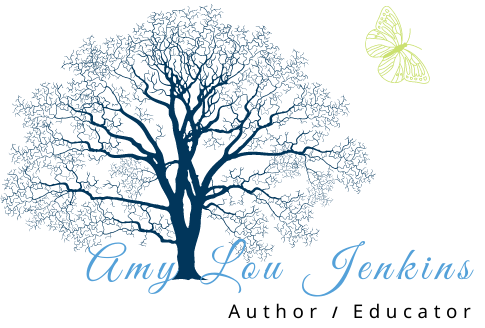
Memoir Mentor Text for Writers: Giving up the Ghost by Hilary Mantel
Hilary Mantel's "Giving Up the Ghost" beckons aspiring writers to explore its depths. In the second installment of our series on mentor memoir texts for writers, we delve into the lessons this memoir imparts, encompassing the art of voice, navigating the sensitive terrain of abuse, mastering structure, and thematic resonance. Additionally, we'll uncover direct writing advice from Mantel herself that adds a practical dimension to reading as a writer.
About Hilary Mantel

Hilary Mantel (1952-2022) achieved widespread popularity through multiple novels. Wolf Hall won both the Man Booker Prize and the National Book Critics Circle Award for fiction. Additionally, Bring Up the Bodies, the second installment in the Wolf Hall Trilogy, won the Man Booker Prize and the Costa Book Award.
Mantel crafted an assortment of books that encompass diverse themes. These include: A Change of Climate, A Place of Greater Safety, Eight Months on Ghazzah Street, An Experiment in Love, The Giant, O'Brien, Fludd, Beyond Black, Every Day Is Mother's Day, Vacant Possession, and her deeply personal memoir: Giving Up the Ghost.
Mantel's literary prowess earned her the prestigious Hawthornden Prize, while her insightful critiques and thought-provoking essays found their home in influential publications such as The New York Times, The New York Review of Books, and the London Review of Books.
Mentor Skill-Crafting an Unforgettable Voice:
Mantel's voice in "Giving Up the Ghost" is a masterclass in memoir narration. The prose is reflective, unapologetic, and carries a unique blend of vulnerability and strength. Memoirists can learn to infuse their distinct voices into their narratives, fostering a powerful connection between author and reader. Mantel's voice becomes a guide, inviting readers not merely to see but to intimately experience her life.
Her voice rings true and original. Her insight widens perceptions. “Insight cannot be taken back. You cannot return to the moment you were in before.” Her voice teaches writing. She doesn’t teach you to write with voice,. Find your own voice. We are inspired to slice through the truth and expose it as she does. For example: “This is what life does for you in the end; it arranges a fight you can’t win.”
Writing about Abuse without Victimizing Oneself:
Navigating the delicate terrain of abuse in memoirs requires finesse, and Mantel's approach exemplifies this skill. In "Giving Up the Ghost," she shares her experiences without succumbing to victimization, offering a blueprint for writers facing similar challenges. Through language and perspective, Mantel empowers herself and her story, providing valuable insights for writers looking to address trauma without losing agency.
She writes about the gifts and horrors of being a woman with an incorrect diagnosis. “Once you’re labeled as mentally ill, and that’s in your medical notes, then anything you say can be discounted as an artefact of your mental illness.”
Memoir Mentor Skill-Crafting Structure with Purpose:
Mantel's deliberate structural choices contribute to the richness of "Giving Up the Ghost." The non-linear chronology mirrors the complexity of memory, allowing readers to engage with the narrative on a deeper level. While she begins in childhood, thematic circles disrupt the chronology of events, yet intensify thematic meaning. Memoirists can draw inspiration from Mantel's deft use of structure, learning to create a resonant exploration of their own lives. Her art illuminates meaning.
Memoir Mentor Text for Writers- Theme as a Guiding Thread:
Themes of loss, identity, illness, institutionalized misogyny, art, and resilience weave through Mantel's memoir. Despite the depth of story, she supplies a cohesive and resonant narrative arc. Memoirists can learn to name and harness central themes, giving their stories purpose and unity. Mantel's thematic exploration transcends the personal, encouraging readers to reflect on their own experiences. When she abandons chronology, we can look for the thematic trail she leads the reader through. We can learn to find and present themes which are universal to our readers. Then our readers feel the transcendence that infuses meaning into their own lives. They are no longer reading about another; they are having an experience. This is a goal for all memoirists. We can use her approach as a template for infusing universal relevance into our memoirs.
Direct Writing Advice from Hilary Mantel:
In Mantel's own words, "Concentrate on sharpening your memory and peeling your sensibility. Cut every page you write by at least one third. Stop constructing those piffling little similes of yours. Work out what it is you want to say. Then say it in the most direct and vigorous way you can. Eat meat. Drink blood. Give up your social life and don't think you can have friends. Rise in the quiet hours of the night and prick your fingertips and use the blood for ink; that will cure you of persiflage!" This raw advice encapsulates Mantel's no-nonsense approach to the craft, urging writers to distill their message to its essence, sacrificing the unnecessary for the sake of impact.
As we continue our exploration of expert memoir texts, "Giving Up the Ghost" by Hilary Mantel serves as a testament to the transformative power of memoir writing executed with grace and artistry. Beyond the profound lessons in voice, trauma navigation, structure, and theme, Mantel's direct writing advice adds a practical dimension, challenging writers to embrace a disciplined and impactful approach to their craft. Let inspiration and perspiration propel your success. Let this exploration inspire us on our literary journeys, as we learn to navigate the intricate landscape of memoir writing with skill and authenticity.



